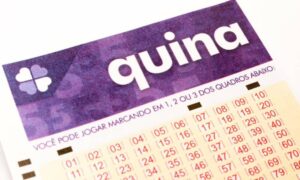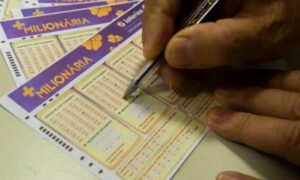The controversy surrounding ticket prices for Beyoncé’s “Cowboy Carter” tour has escalated across the United States after fans reported drastic price discrepancies for seats in the same sections at different concerts. At the Mercedes-Benz Stadium in Atlanta, Georgia, some fans paid approximately $500 for seats in section 127, while others spent more than $1,700 for tickets in the same area. This price gap of up to $1,200 sparked outrage and reignited calls for stricter regulation of the ticketing industry, particularly targeting Ticketmaster, the leading ticket provider in the U.S.
The situation quickly gained traction on social media platforms, especially on a Beyoncé-dedicated subreddit, where over 1,300 users participated in a survey detailing their ticket-purchasing experiences. Responses highlighted the broad range of prices fans paid for identical seats, raising suspicions about the potential use of dynamic pricing—a controversial practice that adjusts ticket costs based on demand. Despite Ticketmaster’s statement denying the use of dynamic pricing or algorithms for Beyoncé’s tour, public skepticism remains high due to the company’s history of pricing controversies.
In Illinois, State Representative Hoan Huynh (D-13th District) had already introduced a bill aimed at curbing exploitative practices in ticket sales. Recent complaints linked to the “Cowboy Carter” tour provided additional support to Huynh’s proposal. The legislation seeks to implement safeguards against speculative resales, mandate the upfront disclosure of all fees, and introduce penalties for misleading sales tactics. Huynh emphasized the importance of protecting fans: “Fans should not have to battle bots, hidden fees, and price manipulation just to attend an event.”
Ticketmaster’s long history of pricing controversies
Ticketmaster, part of Live Nation Entertainment, has long faced backlash from consumers and artists due to several recurring issues:
- Sudden website crashes and mass order cancellations during high-demand ticket sales.
- Excessive service fees added late in the checkout process.
- Ticket shortages within minutes of sales opening, leading to widespread frustration.
- Allegations of enabling scalpers and automated bots to purchase tickets in bulk for resale.
In November 2022, Ticketmaster’s platform collapsed during the sale of Taylor Swift’s “Eras Tour” tickets. The system failure prevented thousands of fans from completing their purchases and resulted in lawsuits, as well as congressional hearings involving Ticketmaster executives.
State-level legislation targeting ticket sales in the U.S.
Growing consumer dissatisfaction has prompted lawmakers across several U.S. states to introduce legislation aimed at ensuring greater transparency and fairness in ticket sales. Notable examples include:
- New York: Enacted a law in 2023 requiring ticket sellers to display the total price, including all fees, from the outset.
- Colorado: Passed legislation mandating platforms to clearly disclose whether tickets are resales and to indicate their source.
- Minnesota: Proposed a bill to combat bot activity and ban the resale of tickets at inflated prices.
These state initiatives are viewed as potential models for the Illinois legislation, which aims to establish robust consumer protections and set a precedent for other states.
How dynamic pricing influences ticket costs in the U.S.
- Ticket prices fluctuate based on demand and the proximity of the event date.
- Platforms use algorithms to automatically raise or lower prices during peak and off-peak periods.
- Airlines and hotels have employed this pricing model for decades, but its application to concerts is relatively new.
- Fans may end up paying two to three times more than others for the same seat if they buy at a peak time.
- Promoters defend dynamic pricing as a tool to limit scalping, though critics argue it exploits consumers.
Economic impact of superstar tours on host cities
Concerts featuring global artists like Beyoncé significantly stimulate local economies by boosting tourism, hospitality, and transportation sectors. Large-scale events often lead to increased tax revenue and temporary job creation. Key data includes:
- Beyoncé’s “Renaissance Tour” reportedly generated $4.5 billion in economic activity across U.S. cities in 2023.
- Taylor Swift’s “Eras Tour” surpassed $5 billion in estimated economic impact within the United States.
- Concertgoers spend an average of $1,870 per event on tickets, accommodation, food, and travel.
Fan reactions and social media backlash
The backlash over Beyoncé’s “Cowboy Carter” ticket prices extended beyond the dollar amounts. Fans voiced their frustration over long virtual queues, transaction failures, and fears of being scammed:
- Hashtags like #TicketmasterScam and #FixTheTicketingSystem trended on social platforms.
- Users shared screenshots showing ticket prices exceeding $2,000 for single seats.
- Some fans booked flights and hotels before securing tickets, only to be left disappointed when they couldn’t complete their purchases.
Timeline of recent Ticketmaster-related controversies
- November 2022: Taylor Swift’s “Eras Tour” sales debacle results in system crashes and lawsuits.
- May 2023: Fans accuse Ticketmaster of overcharging for Drake concert tickets.
- February 2024: Complaints surface about high fees during Beyoncé’s “Renaissance Tour.”
- February 2025: Price discrepancies for Beyoncé’s “Cowboy Carter” reignite criticism.
Key figures and facts on the U.S. ticketing industry
- The U.S. ticketing and resale market is valued at over $9 billion annually.
- 68% of consumers believe service fees are excessive and poorly communicated.
- 42% of concertgoers reported difficulties completing their ticket purchases in the past two years.
Details on Illinois legislation targeting ticket sales
- Led by Democratic State Representative Hoan Huynh.
- Proposes penalties for ticket sellers who fail to disclose all fees upfront.
- Includes measures to prevent bots from mass-purchasing tickets.
- Requires clear labeling of tickets sold above face value.
- Could position Illinois as a national leader in ticket sales transparency if passed.
Consumer spending trends and ticket pricing concerns
- 54% of Americans have skipped concerts due to unaffordable ticket prices.
- 39% of music fans spend more than $500 annually on live events.
- Lawsuits targeting ticketing platforms rose by 27% between 2022 and 2024.
Historical background on ticket sales practices in the U.S.
The U.S. ticketing industry has undergone substantial changes since the early 2000s, driven by the rise of online sales. While digital platforms offered greater convenience, they also introduced vulnerabilities such as automated scalping and price surges. The 2010 merger between Ticketmaster and Live Nation solidified the company’s dominance, drawing criticism for limiting competition and enabling opaque pricing practices.
Notable U.S. cities impacted by the “Cowboy Carter” tour ticket controversy
- Atlanta, Georgia: Fans reported paying between $500 and $1,700 for section 127 seats.
- Chicago, Illinois: Similar complaints surfaced, fueling local regulatory efforts.
- Los Angeles, California: Some fans saw prices soar to over $2,500 for premium seating.
Key data on consumer dissatisfaction with ticket sales
- 76% of buyers prefer platforms that display final prices, avoiding hidden fees.
- 48% of concertgoers consider ticket-buying experiences more stressful than other purchases.
- 36% of consumers support stricter government oversight of ticket vendors.
Major U.S. legislation and legal actions on ticket sales
- The “BOSS Act” (Better Oversight of Secondary Sales and Accountability in Concert Ticketing), introduced in Congress, aims to mandate full price transparency.
- Multiple state attorneys general have launched investigations into Ticketmaster for antitrust violations.
- Lawsuits seeking compensation for fans affected by the “Eras Tour” sales crash remain ongoing.
Future outlook on ticket sales regulation
Although federal action remains limited, growing pressure from state governments and consumer advocacy groups signals that the U.S. ticketing landscape could soon face more stringent oversight. Artists, including Beyoncé and Taylor Swift, have called for reforms, amplifying public demand for change.

The controversy surrounding ticket prices for Beyoncé’s “Cowboy Carter” tour has escalated across the United States after fans reported drastic price discrepancies for seats in the same sections at different concerts. At the Mercedes-Benz Stadium in Atlanta, Georgia, some fans paid approximately $500 for seats in section 127, while others spent more than $1,700 for tickets in the same area. This price gap of up to $1,200 sparked outrage and reignited calls for stricter regulation of the ticketing industry, particularly targeting Ticketmaster, the leading ticket provider in the U.S.
The situation quickly gained traction on social media platforms, especially on a Beyoncé-dedicated subreddit, where over 1,300 users participated in a survey detailing their ticket-purchasing experiences. Responses highlighted the broad range of prices fans paid for identical seats, raising suspicions about the potential use of dynamic pricing—a controversial practice that adjusts ticket costs based on demand. Despite Ticketmaster’s statement denying the use of dynamic pricing or algorithms for Beyoncé’s tour, public skepticism remains high due to the company’s history of pricing controversies.
In Illinois, State Representative Hoan Huynh (D-13th District) had already introduced a bill aimed at curbing exploitative practices in ticket sales. Recent complaints linked to the “Cowboy Carter” tour provided additional support to Huynh’s proposal. The legislation seeks to implement safeguards against speculative resales, mandate the upfront disclosure of all fees, and introduce penalties for misleading sales tactics. Huynh emphasized the importance of protecting fans: “Fans should not have to battle bots, hidden fees, and price manipulation just to attend an event.”
Ticketmaster’s long history of pricing controversies
Ticketmaster, part of Live Nation Entertainment, has long faced backlash from consumers and artists due to several recurring issues:
- Sudden website crashes and mass order cancellations during high-demand ticket sales.
- Excessive service fees added late in the checkout process.
- Ticket shortages within minutes of sales opening, leading to widespread frustration.
- Allegations of enabling scalpers and automated bots to purchase tickets in bulk for resale.
In November 2022, Ticketmaster’s platform collapsed during the sale of Taylor Swift’s “Eras Tour” tickets. The system failure prevented thousands of fans from completing their purchases and resulted in lawsuits, as well as congressional hearings involving Ticketmaster executives.
State-level legislation targeting ticket sales in the U.S.
Growing consumer dissatisfaction has prompted lawmakers across several U.S. states to introduce legislation aimed at ensuring greater transparency and fairness in ticket sales. Notable examples include:
- New York: Enacted a law in 2023 requiring ticket sellers to display the total price, including all fees, from the outset.
- Colorado: Passed legislation mandating platforms to clearly disclose whether tickets are resales and to indicate their source.
- Minnesota: Proposed a bill to combat bot activity and ban the resale of tickets at inflated prices.
These state initiatives are viewed as potential models for the Illinois legislation, which aims to establish robust consumer protections and set a precedent for other states.
How dynamic pricing influences ticket costs in the U.S.
- Ticket prices fluctuate based on demand and the proximity of the event date.
- Platforms use algorithms to automatically raise or lower prices during peak and off-peak periods.
- Airlines and hotels have employed this pricing model for decades, but its application to concerts is relatively new.
- Fans may end up paying two to three times more than others for the same seat if they buy at a peak time.
- Promoters defend dynamic pricing as a tool to limit scalping, though critics argue it exploits consumers.
Economic impact of superstar tours on host cities
Concerts featuring global artists like Beyoncé significantly stimulate local economies by boosting tourism, hospitality, and transportation sectors. Large-scale events often lead to increased tax revenue and temporary job creation. Key data includes:
- Beyoncé’s “Renaissance Tour” reportedly generated $4.5 billion in economic activity across U.S. cities in 2023.
- Taylor Swift’s “Eras Tour” surpassed $5 billion in estimated economic impact within the United States.
- Concertgoers spend an average of $1,870 per event on tickets, accommodation, food, and travel.
Fan reactions and social media backlash
The backlash over Beyoncé’s “Cowboy Carter” ticket prices extended beyond the dollar amounts. Fans voiced their frustration over long virtual queues, transaction failures, and fears of being scammed:
- Hashtags like #TicketmasterScam and #FixTheTicketingSystem trended on social platforms.
- Users shared screenshots showing ticket prices exceeding $2,000 for single seats.
- Some fans booked flights and hotels before securing tickets, only to be left disappointed when they couldn’t complete their purchases.
Timeline of recent Ticketmaster-related controversies
- November 2022: Taylor Swift’s “Eras Tour” sales debacle results in system crashes and lawsuits.
- May 2023: Fans accuse Ticketmaster of overcharging for Drake concert tickets.
- February 2024: Complaints surface about high fees during Beyoncé’s “Renaissance Tour.”
- February 2025: Price discrepancies for Beyoncé’s “Cowboy Carter” reignite criticism.
Key figures and facts on the U.S. ticketing industry
- The U.S. ticketing and resale market is valued at over $9 billion annually.
- 68% of consumers believe service fees are excessive and poorly communicated.
- 42% of concertgoers reported difficulties completing their ticket purchases in the past two years.
Details on Illinois legislation targeting ticket sales
- Led by Democratic State Representative Hoan Huynh.
- Proposes penalties for ticket sellers who fail to disclose all fees upfront.
- Includes measures to prevent bots from mass-purchasing tickets.
- Requires clear labeling of tickets sold above face value.
- Could position Illinois as a national leader in ticket sales transparency if passed.
Consumer spending trends and ticket pricing concerns
- 54% of Americans have skipped concerts due to unaffordable ticket prices.
- 39% of music fans spend more than $500 annually on live events.
- Lawsuits targeting ticketing platforms rose by 27% between 2022 and 2024.
Historical background on ticket sales practices in the U.S.
The U.S. ticketing industry has undergone substantial changes since the early 2000s, driven by the rise of online sales. While digital platforms offered greater convenience, they also introduced vulnerabilities such as automated scalping and price surges. The 2010 merger between Ticketmaster and Live Nation solidified the company’s dominance, drawing criticism for limiting competition and enabling opaque pricing practices.
Notable U.S. cities impacted by the “Cowboy Carter” tour ticket controversy
- Atlanta, Georgia: Fans reported paying between $500 and $1,700 for section 127 seats.
- Chicago, Illinois: Similar complaints surfaced, fueling local regulatory efforts.
- Los Angeles, California: Some fans saw prices soar to over $2,500 for premium seating.
Key data on consumer dissatisfaction with ticket sales
- 76% of buyers prefer platforms that display final prices, avoiding hidden fees.
- 48% of concertgoers consider ticket-buying experiences more stressful than other purchases.
- 36% of consumers support stricter government oversight of ticket vendors.
Major U.S. legislation and legal actions on ticket sales
- The “BOSS Act” (Better Oversight of Secondary Sales and Accountability in Concert Ticketing), introduced in Congress, aims to mandate full price transparency.
- Multiple state attorneys general have launched investigations into Ticketmaster for antitrust violations.
- Lawsuits seeking compensation for fans affected by the “Eras Tour” sales crash remain ongoing.
Future outlook on ticket sales regulation
Although federal action remains limited, growing pressure from state governments and consumer advocacy groups signals that the U.S. ticketing landscape could soon face more stringent oversight. Artists, including Beyoncé and Taylor Swift, have called for reforms, amplifying public demand for change.







